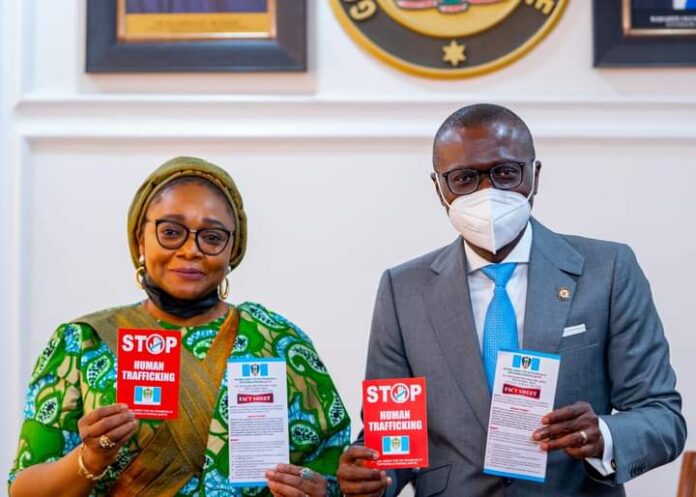Lagos State Governor, Mr. Babajide Sanwo-Olu, has said the unabated trafficking in persons presents a threat to the country, pledging that the State will be lending more support to the National Agency for the Prohibition of Trafficking in Persons (NAPTIP) to rehabilitate victims and prosecute traffickers.
Sanwo-Olu said the State would be reaching out to the agency for support in human capital requirements and operation space to boost the agency’s response to the crime.
The Governor made the pledge when the NAPTIP’s Director-General, Hajia Imaan Suleiman-Ibrahim, led members of the management team on a courtesy to the State House, Alausa, on Monday.
Sanwo-Olu disclosed that the Government had strengthened social awareness in communities to discourage trafficking and other forms of human rights abuses, stressing that Lagos had raised its investment in attending to psychosocial needs of victims of abuses and granting them protection from their abusers.
He said: “Human trafficking indeed presents a deadly trend in our society and we need to protect our citizens, especially the vulnerable in our communities. For those who have fallen victims, we must stand up and protect them.
“The support and collaboration which NAPTIP has enjoyed from Lagos State Government could be strengthened. Through the Ministry of Woman Affairs and Poverty Alleviation, we have rendered support to NAPTIP in terms of human and material requirements for your zonal office.”
Sanwo-Olu said Lagos was ready to boost its collaboration with the agency in other areas of support, adding that the State Government would work closely with NAPTIP to rehabilitate victims and equip them with skills that will make them self-reliant.
Suleiman-Ibrahim said Lagos remained strategic to the fight against human traffickers, because of its proximity to international borders, which she said, made the State prone to trafficking activities.
She noted that Nigeria remained a fertile ground for recruitment of trafficked persons, saying victims had been turned to commodities.
She said: “We cannot fight traffickers from skeletal locations; this is why we are deepening our engagement with States to stop trafficking and those behind the dehumanising trade.”



















